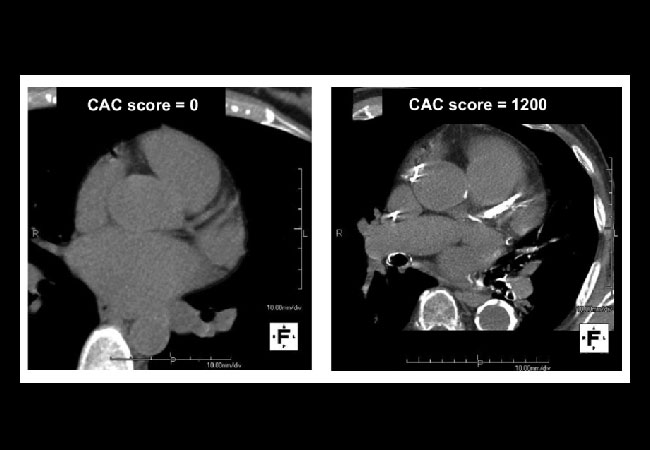The coronary calcium score (CCS) has become an indispensable diagnostic instrument in the field of preventive cardiology, providing previously unattainable insights into cardiac health. By providing a visual representation of the location and magnitude of calcified plaque in the coronary arteries, this non-invasive imaging modality contributes significantly to the evaluation of cardiovascular risk. Let’s delve into the advantages of coronary calcium scoring and its significance in promoting heart health.
- Early Detection Of Atherosclerosis
Coronary calcium scoring allows for the early detection of atherosclerosis, a key precursor to cardiovascular disease. By measuring the amount of calcium deposits in the coronary arteries, healthcare providers can identify the presence of plaque buildup even before symptoms manifest. This early detection enables timely intervention and lifestyle modifications to prevent the progression of heart disease.
- Accurate Risk Stratification
One of the primary advantages of coronary calcium score is its ability to accurately stratify an individual’s risk of cardiovascular events. Unlike traditional risk assessment tools that rely solely on factors like cholesterol levels and blood pressure, coronary calcium scoring provides a direct measure of arterial plaque burden. Those with higher calcium scores are at elevated risk of heart attacks and strokes, prompting targeted interventions such as statin therapy or lifestyle modifications.
- Personalized Treatment Plans
By incorporating coronary calcium scoring into risk assessment protocols, healthcare providers can develop personalized treatment plans tailored to each patient’s unique risk profile. For individuals with elevated calcium scores, aggressive risk factor modification strategies may be recommended to mitigate the progression of atherosclerosis. Conversely, those with low calcium scores may be reassured and spared unnecessary interventions, leading to more efficient resource allocation and improved patient outcomes.
- Prognostic Value
The predictive value of coronary calcium scoring in adversity-ahead cardiovascular events has been established by a multitude of studies. A higher calcium score is associated with an increased risk of adverse outcomes, including heart attacks, strokes, and cardiovascular mortality. Healthcare providers can ultimately improve long-term prognosis and quality of life by implementing preventive measures to decrease the likelihood of such events in high-risk individuals through early identification.
- Motivation For Lifestyle Changes
For many individuals, seeing tangible evidence of arterial plaque buildup through coronary calcium scoring serves as a powerful motivator for adopting healthier lifestyle habits. Plaque calcification can function as an alarm system, motivating individuals to embrace constructive modifications, including smoking cessation, adoption of a heart-healthy diet, heightened physical activity, and stress management. This behavioral modification is crucial for long-term cardiovascular health and disease prevention.
- Cost-Effectiveness
Despite initial concerns about cost, studies have shown that coronary calcium scoring can be a cost-effective tool for cardiovascular risk assessment. By accurately identifying high-risk individuals who stand to benefit most from preventive interventions, coronary calcium scoring can potentially reduce healthcare costs associated with the treatment of cardiovascular events and complications. Additionally, the judicious use of resources based on individual risk profiles can lead to more efficient allocation of healthcare resources.
Conclusion
In conclusion, coronary calcium scoring offers a window to heart health by providing valuable insights into the presence and extent of arterial plaque buildup. From early detection of atherosclerosis to accurate risk stratification and personalized treatment planning, this non-invasive imaging technique plays a pivotal role in preventive cardiology. Through the utilization of coronary calcium scoring, medical professionals have the ability to enable patients to adopt preventative measures that safeguard cardiovascular well-being and mitigate the impact of heart disease.





